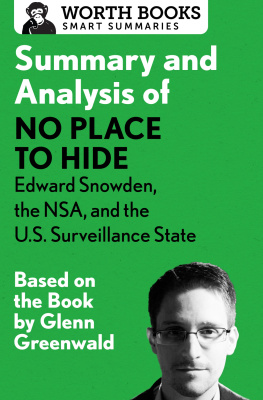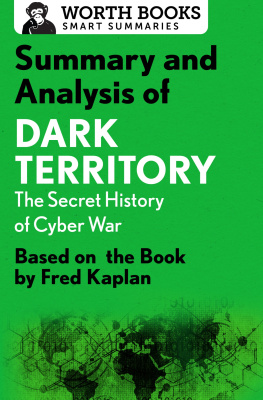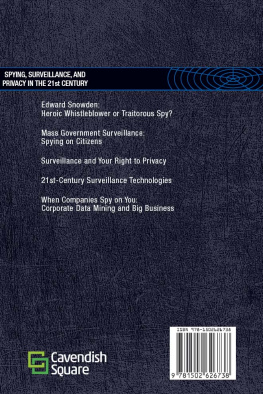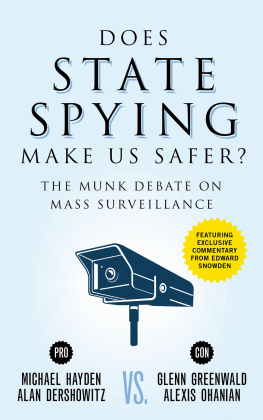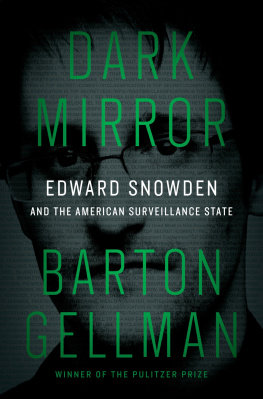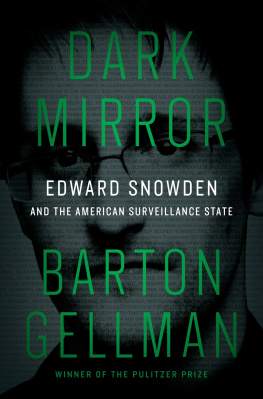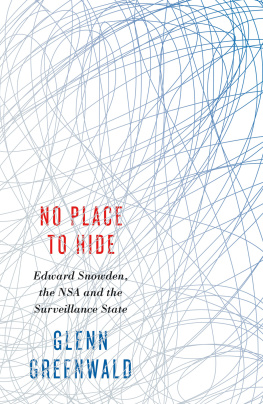Context
The history of American domestic surveillance of its civilians is lengthy, well documented, and difficult to defend. J. Edgar Hoover abused his powers at the FBI for nearly four decades, spying on activists, dissidents, and political opponents of all kinds. Political theorists and researchers of American history such as A Peoples History of the United States by Howard Zinn, the New Yorker s Seymour Hersh, and muckraker H. L. Mencken have suggested that there is evidence that every administration since President Woodrow Wilson engaged in some form of mail reading, wiretapping, shadowing, and general spying on civilians who, in most cases, were found to have been engaged in no violent political activity.
After the terrorist attacks of September 11, 2001, President George W. Bush signed into law the USA Patriot Act, which gave the government unprecedented domestic surveillance powers. Most people had little idea how much those powers trespassed on their privacy and civil liberties until 2013, when whistle-blower Edward Snowden leaked a treasure trove of documents from his job at the NSA. These documents revealed high-level spying by the agency on ordinary citizens. Daniel Ellsberg, who leaked the famous Pentagon Papers in 1971 and revealed US involvement in war crimes in Vietnam, said that there has not been in American history a more important leak than Edward Snowdens release of NSA material.
While, after the leaks, the media depicted Snowden as a disgruntled, low-level employee, he was actually a high-level and highly valued systems engineer for a range of public and private intelligence agencies throughout his twenties (NSA, CIA, Booz Allen Hamilton) with a high level of security clearance. When deciding who to entrust his information to, he chose reporter Glenn Greenwald and documentarian Laura Poitras carefully. Greenwald, a former lawyer at the American Civil Liberties Union, wrote widely on surveillance, the CIA, and the NSA, using his background in constitutional law as a framework. Laura Poitras had covered the US occupation of Iraq and the creation of the Guantanamo detention facility in her award-winning films about the War on Terror. Both journalists had proved their bona fides in dissecting the US intelligence communitys failures and opaque practices.
The work of Poitras and Greenwald exposed the evidence of passive domestic surveillance of US citizens, and the internal policies of the NSA and sub-agencies that, in Snowdens view, broke the law as well as violated the US Constitution. It also unmasked what Greenwald and Poitras see as the capitulation of the US media, which let the faulty intelligence that led to the War on Terror go largely unchallenged.
Greenwald and Poitras continue to train their sights on the US intelligence communityGreenwald on his site The Intercept , where he has written widely on Trumps relationship with Russia, and Poitras in the Academy Awardwinning Citizenfour, her explosive documentary about Snowdens revelations. As of this writing, Snowden himself remains in exile in Russia to avoid espionage chargesconsidered a traitor to some, a hero to others.
Overview
When intelligence reporter Glenn Greenwald received a message from a mysterious figure calling himself Cincinnatus, stating that he had information the journalist would be interested in, Greenwald was inclined to dismiss it. He had no idea that it would eventually lead him on a career-changing journey to a fancy hotel in Hong Kong where he would meet Edward Snowden, a high-level cyber security agent in possession of thousands of top-secret documents proving that the NSA was monitoring everyone in America, as well as attempting to retrieve and store electronic communications of everyone in the world.
Back in 2012, people might have entertained the idea that government agencies could hack their computers if they wanted to. But what Snowdens documents revealed was far worse: the NSA hadand still hassystems in place that can commandeer cell phones and computers connected to the Internet around the world, and was collecting, analyzing, and storing data without warrants, or even probable cause. Greenwald had been writing about privacy issues for many years, but even he was shocked by the extent of the surveillance that Snowden seemed to be saying was commonplace. Again and again, internal NSA documents revealed their primary directive: Collect it all.
Over a series of intensive interviews, Greenwald, along with Guardian reporter Ewen MacAskill, took notes for a string of stories to be published later in the Guardian, while documentarian Laura Poitras recorded the interviews. When the stories about the NSA leak were published, Americans view of their country was altered dramatically, revolutionizing the public perception of the capability of intelligence agencies to watch and monitor populations.
No Place to Hide is the story of that journey, as well as a primer on American surveillance, post-9/11 style. It also reviews the role of journalists in an era of compromised privacy, and the infringement on personal privacy in the name of safety.
When a government has no restrictions on its surveillance power, citizens live with the awareness that we may be surveilled at any time. This, Greenwald argues, is not freedom. Privacy is a necessity for personal freedom and liberty; its where we make mistakes, learn, and let our guards down. To move through life knowing that a shadowy agency may be monitoring you at any moment is to be forced to internalize correct ways of thinking and behaving. And when the NSA has an incredible amount of power to watch people, it can also frighten and coerce them.
A journalist whos being monitored by power is exposed to pressure and coercion by that power and its interests. (Indeed, Greenwald, Poitras, and even Greenwalds husband are detained multiple times during their investigation.) Greenwald writes about the corporate media, which he views as a show business offshoot full of highly paid yes-men and -women who largely take directions from Washington, DC, and the Pentagon without doing any investigating of their own. They promote false narratives and are journalists in no sense of the word, nor did they seem to care during the expose that the NSA surveillance systems were continuing unhindered.

